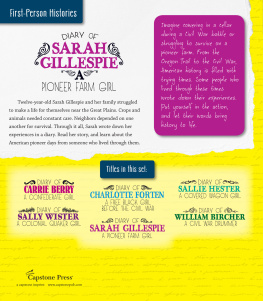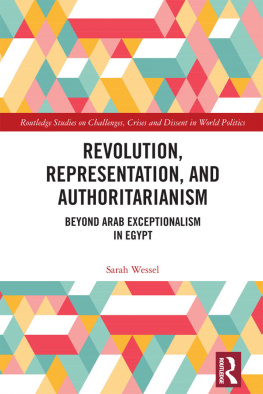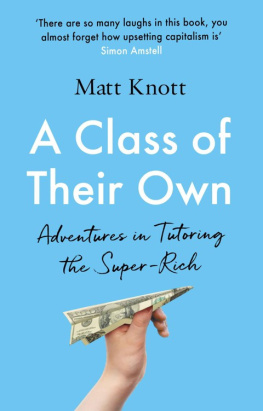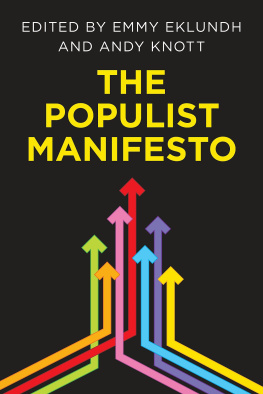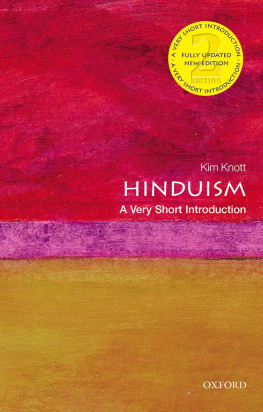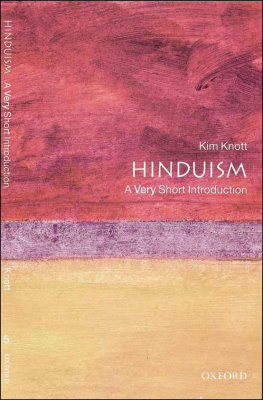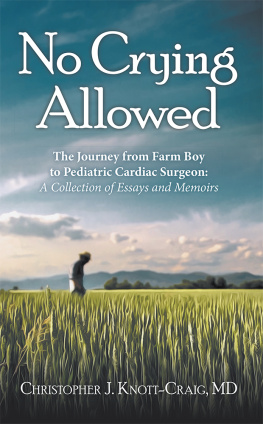Sarah Knott - Sensibility and the American Revolution
Here you can read online Sarah Knott - Sensibility and the American Revolution full text of the book (entire story) in english for free. Download pdf and epub, get meaning, cover and reviews about this ebook. year: 2014, publisher: The University of North Carolina Press, genre: Politics. Description of the work, (preface) as well as reviews are available. Best literature library LitArk.com created for fans of good reading and offers a wide selection of genres:
Romance novel
Science fiction
Adventure
Detective
Science
History
Home and family
Prose
Art
Politics
Computer
Non-fiction
Religion
Business
Children
Humor
Choose a favorite category and find really read worthwhile books. Enjoy immersion in the world of imagination, feel the emotions of the characters or learn something new for yourself, make an fascinating discovery.

- Book:Sensibility and the American Revolution
- Author:
- Publisher:The University of North Carolina Press
- Genre:
- Year:2014
- Rating:5 / 5
- Favourites:Add to favourites
- Your mark:
- 100
- 1
- 2
- 3
- 4
- 5
Sensibility and the American Revolution: summary, description and annotation
We offer to read an annotation, description, summary or preface (depends on what the author of the book "Sensibility and the American Revolution" wrote himself). If you haven't found the necessary information about the book — write in the comments, we will try to find it.
Sensibility and the American Revolution — read online for free the complete book (whole text) full work
Below is the text of the book, divided by pages. System saving the place of the last page read, allows you to conveniently read the book "Sensibility and the American Revolution" online for free, without having to search again every time where you left off. Put a bookmark, and you can go to the page where you finished reading at any time.
Font size:
Interval:
Bookmark:
Sensibility and the American Revolution

The Omohundro Institute of Early American History and Culture is sponsored jointly by the College of William and Mary and the Colonial Williamsburg Foundation. On November 15, 1996, the Institute adopted the present name in honor of a bequest from Malvern H. Omohundro, Jr.
2009 The University of North Carolina Press
All rights reserved
Designed by Kimberly Bryant
Set in Minion by Keystone Typesetting, Inc.
Manufactured in the United States of America
Library of Congress Cataloging-in-Publication Data
Knott, Sarah, 1972
Sensibility and the American Revolution / Sarah Knott.
p. cm.
Includes bibliographical references and index.
ISBN 978-0-8078-3198-4 (cloth: alk. paper)
ISBN 978-0-8078-5918-6 (pbk.: alk. paper)
1. United StatesHistoryRevolution, 17751783Social aspects. 2. United StatesSocial life and customs17751865. 3. Sensitivity (Personality trait)Social aspectsUnited StatesHistory18th century. 4. Sensitivity (Personality trait)Political aspectsUnited StatesHistory18th century. 5. Self-perceptionUnited StatesHistory18th century. 6. Social interactionUnited StatesHistory18th century. 7. Community lifeUnited StatesHistory18th century. 8. Political cultureUnited StatesHistory18th century. 9. United StatesPolitics and government17751783. 10. United StatesPolitics and government17831809. I. Title.
E209.K58 2008
973.31dc22 2008018140
Parts of this book draw on previously published work: Benjamin Rushs Ferment: Enlightenment Medicine and Female Citizenship, in Sarah Knott and Barbara Taylor, eds., Women, Gender, and Enlightenment (Houndmills, 2005), 649666; Sensibility and the American War for Independence, American Historical Review, CIX (2004), 1940.
The paper in this book meets the guidelines for permanence and durability of the Committee on Production Guidelines for Book Longevity of the Council on Library Resources.
The University of North Carolina Press has been a member of the Green Press Initiative since 2003.
This volume received indirect support from an unrestricted book publication grant awarded to the Institute by the L. J. Skaggs and Mary C. Skaggs Foundation of Oakland, California.
cloth 13 12 11 10 09 5 4 3 2 1
paper 13 12 11 10 09 5 4 3 2 1
for ROBERT KNOTT
The eighteenth-century sentimentalists who are the central subject of this book sometimes imagined the world in terms of concentric circles, radiating out from a single core and marked by different degrees of sympathy. At the center was the individual self, then came the circle of family, then the ring of village or town, and so on. This book and its author are indebted to a set of equally generous circles in Oxford, Philadelphia, London, and Bloomington.
In Oxford, Laurence Brockliss, Joanna Innes, Paul Langford, and John Robertson introduced me to different European eighteenth centuries. Peter Thompson helped make me an American historian and was an early guide and advocate of the project in its dissertation form. Philip Carter, Hlne Neveu Kringelbach, Myfanwy Lloyd, Lyndal Roper, Alexandra Shepard, Susan Skedd, Nick Stargardt, and Abigail Williams each made the past or ordinary lifeor bothso much more interesting. Librarians at the Bodleian Library, especially Rhodes House, helped me track down references and wrestle with the Evans Collection on microcard. Simon Newman, David Waldstreicher, and Dror Wahrman, all well versed in the conventions of American academia, read the dissertation manuscript for different reasons and propelled it toward an initial book form.
Much of the archival research was accomplished in Philadelphia. Richard Dunn ensured that the McNeil Center for Early American Studies was a place of welcome. Michael Zuckerman always asked the question that turned an argument upside down, and Seth Cotlar was the first among many new interlocutors. It is a pleasure to thank the various librarians and archivists of the citys institutions in which I undertook research, all of which provided funding of some kind: the American Philosophical Society, the College of Physicians, the Historical Society of Pennsylvania, the Library Company of Philadelphia, and the University of Pennsylvania as well as, a short distance away, the David Library of the American Revolution. One librarian can perhaps stand in for the rest: James Green at the Library Company was always quick to share what he knew about print cultureas well as the strange and wonderful career of Robert Bell, Provedore to the Sentimentalistsand invariably curious about what I found. The professionalism and generosity I found in Philadelphia was mirrored in that of other American archives, including the Library of Congress and the National Library of Medicine.
London was the base of the Leverhulme Trustsponsored Feminism and Enlightenment project for which I had the good fortune to be a research fellow. Certain scholars associated with that collaborative venture have aided this book immeasurably, and especially its gender and comparative dimension: Norma Clarke, Suzanne Desan, Mark Salber Phillips, Nicholas Phillipson, Jane Rendall, Silvia Sebastiani, Anne Vila, and Dror Wahrman. Dena Goodman showed with immense panache that it is possible to succeed without a wife. Barbara Taylor, who I first encountered as the project director, is the best model of a rich and companionable writing life that I know, and a wonderful collaborator in life as in research.
At Indiana University, I encountered a set of scholars committed to interdisciplinary approaches to the eighteenth century and to arguing about self. My thanks must especially go to Fritz Breithaupt, Jonathan Elmer, Mary Favret, Deidre Lynch, Jonathan Sheehan, Rebecca Spang, and Dror Wahrman (again), and to all the members of what has become the Center for Eighteenth-Century Studies. In the History Department, Michael Grossberg has been an exemplary and encouraging mentor, as is Maria Bucur in more informal fashion. John Bodnar made it possible for me to complete final revisions even as I began as associate editor at the American Historical Review, a kindness that I especially appreciate. Working at the journal with editor Robert Schneider has I hope made me a better reader of my own as well as others work. The members of the American history writing group, especially Kirsten Sword, keep reminding me that I am a historian of the United States not just the eighteenth century. Constance Furey is a scholar of friendship both on and off the page, and makes me smarter on both counts. To stand for the dense web of Bloomington friends, it is also a pleasure to thank Gardner Bovingdon, Judith Brown, Marie Deer, Jennifer Fleissner, Sara Friedman, Mary Gray, Catherine Guthrie, Kathryn Lofton, Leandro Lopes, Marissa Moorman, and Mark Roseman.
Long-term funding from the Thouron Foundation, the British Academy, St. Hughs and Wolfson Colleges in Oxford, and the Andrew W. Mellon Foundation was crucial, as was support from Indiana University in the form of an Outstanding Junior Faculty fellowship. Audiences at the American Society for Eighteenth-Century Studies, British Association of American Studies, British Group of Early American Historians, Huntington Library, Omohundro Institute of Early American History and Culture, Organization of American Historians, North American Conference of British Studies, Northwestern University, Wellcome Institute, and the Universities of Oxford, Michigan, and Paris-Diderot helped to hone the project. For enlightening conversations or comments on papers and chapters, I particularly thank Christopher Brown, Seth Cotlar, Kate Davies, James Delbourgo, Toby Ditz, Bernard Herman, Woody Holton, Daniel Walker Howe, Joanna Innes, Susan Klepp, Ned Landsman, Edward Larkin, Christopher Lawrence, Jan Lewis, Michael McDonnell, Felicity Nussbaum, Seth Rockman, Richard Sher, David Shields, Eric Slauter, Dave Thelen, Bryan Waterman, Elizabeth Williams, Karin Wulf, and Rosemarie Zagarri.
Next pageFont size:
Interval:
Bookmark:
Similar books «Sensibility and the American Revolution»
Look at similar books to Sensibility and the American Revolution. We have selected literature similar in name and meaning in the hope of providing readers with more options to find new, interesting, not yet read works.
Discussion, reviews of the book Sensibility and the American Revolution and just readers' own opinions. Leave your comments, write what you think about the work, its meaning or the main characters. Specify what exactly you liked and what you didn't like, and why you think so.

